-
EXECUTIVE SUMMARY
-
MARKET INTRODUCTION
-
Definition
-
Scope of the Study
-
Research Objective
-
Assumptions
-
Limitations
-
RESEARCH METHODOLOGY
-
Overview
-
Data Mining
-
Secondary Research
-
Primary Research
-
Primary Interviews and Information Gathering Process
-
Breakdown of Primary Respondents
-
Forecasting Model
-
Market Size Estimation
- Bottom-Up Approach
- Top-Down Approach
-
Data Triangulation
-
Validation
-
MARKET DYNAMICS
-
Overview
-
Drivers
-
Restraints
-
Opportunities
-
MARKET FACTOR ANALYSIS
-
Value Chain Analysis
-
Porter’s Five
- Bargaining Power of Buyers
- Threat of New Entrants
- Threat of Substitutes
- Intensity of Rivalry
-
Forces Analysis
-
Bargaining Power of Suppliers
-
COVID-19 Impact Analysis
- Market Impact Analysis
- Regional Impact
- Opportunity and Threat Analysis
-
GLOBAL BETA-GLUCAN
-
MARKET, BY SOURCE
-
Overview
-
Yeast
-
Mushroom
-
Cereals
-
Microalgae
-
GLOBAL BETA-GLUCAN MARKET, BY APPLICATION
-
Overview
-
Food & Beverages
-
Animal Feed
-
Personal Care
-
Pharmaceuticals
-
Others
-
GLOBAL BETA-GLUCAN MARKET, BY TYPE
-
Overview
-
(1,3) Beta Glucan
-
(1,4) Beta Glucan
-
(1,6) Beta Glucan
-
GLOBAL BETA-GLUCAN
-
MARKET, BY REGION
-
Overview
-
North America
-
U.S.
-
Canada
-
Europe
-
Germany
-
France
-
U.K
-
Italy
-
Spain
-
Rest of Europe
-
Asia-Pacific
-
China
-
India
-
Japan
-
South Korea
-
Australia
-
Rest of Asia-Pacific
-
Rest of the World
-
Middle East
-
Africa
-
Latin America
-
COMPETITIVE LANDSCAPE
-
Overview
-
Competitive Analysis
-
Market Share Analysis
-
Major Growth Strategy in the Global Beta-Glucan Market,
-
Competitive Benchmarking
-
Leading Players in Terms
-
of Number of Developments in the Global Beta-Glucan Market,
-
Key developments and Growth Strategies
- New Product Launch/Application
- Joint Ventures
-
Deployment
-
Merger & Acquisitions
-
Major Players Financial Matrix
- Sales & Operating Income, 2022
- Major Players
-
R&D Expenditure. 2022
-
COMPANY PROFILES
-
Kerry Group plc.
- Company Overview
- Financial Overview
- Products Offered
- Key Developments
- SWOT Analysis
- Key Strategies
-
Givaudan SA
- Company Overview
- Financial Overview
- Products Offered
- Key Developments
- SWOT Analysis
- Key Strategies
-
Koninklijke DSM N.V.
- Company Overview
- Financial Overview
- Products Offered
- Key Developments
- SWOT Analysis
- Key Strategies
-
Euglena Co. Ltd
- Company Overview
- Financial Overview
- Products Offered
- Key Developments
- SWOT Analysis
- Key Strategies
-
Biotec Pharmacon ASA
- Company Overview
- Financial Overview
- Products Offered
- Key Developments
- SWOT Analysis
- Key Strategies
-
TATE & LYLE PLC.
- Company Overview
- Financial Overview
- Products Offered
- Key Developments
- SWOT Analysis
- Key Strategies
-
Lesaffre Group
- Company Overview
- Financial Overview
- Products Offered
- Key Developments
- SWOT Analysis
- Key Strategies
-
Kemin Industries, Inc.
- Company Overview
- Financial Overview
- Products Offered
- Key Developments
- SWOT Analysis
- Key Strategies
-
ABF Ingredients
- Company Overview
- Financial Overview
- Products Offered
- Key Developments
- SWOT Analysis
- Key Strategies
-
Super Beta Glucan
- Company Overview
- Financial Overview
- Products Offered
- Key Developments
- SWOT Analysis
- Key Strategies
-
Garuda International, Inc.
- Company Overview
- Financial Overview
- Products Offered
- Key Developments
- SWOT Analysis
- Key Strategies
-
APPENDIX
-
References
-
Related Reports
-
-
LIST OF TABLES
-
GLOBAL BETA-GLUCAN MARKET,
-
SYNOPSIS, 2020-2032
-
TABLE
-
GLOBAL BETA-GLUCAN MARKET, ESTIMATES & FORECAST, 2020-2032 (USD BILLION)
-
GLOBAL BETA-GLUCAN
-
MARKET, BY SOURCE, 2020-2032 (USD BILLION)
-
GLOBAL BETA-GLUCAN MARKET, BY APPLICATION,
-
GLOBAL BETA-GLUCAN MARKET, BY TYPE, 2020-2032 (USD BILLION)
-
NORTH AMERICA
-
BETA-GLUCAN MARKET, BY SOURCE, 2020-2032 (USD BILLION)
-
NORTH AMERICA BETA-GLUCAN MARKET, BY APPLICATION,
-
NORTH AMERICA BETA-GLUCAN MARKET, BY TYPE, 2020-2032 (USD BILLION)
-
NORTH AMERICA
-
BETA-GLUCAN MARKET, BY COUNTRY, 2020-2032 (USD BILLION)
-
U.S. BETA-GLUCAN MARKET, BY SOURCE, 2020-2032
-
(USD BILLION)
-
TABLE
-
U.S. BETA-GLUCAN MARKET, BY APPLICATION, 2020-2032 (USD BILLION)
-
U.S. BETA-GLUCAN MARKET,
-
BY TYPE, 2020-2032 (USD BILLION)
-
CANADA BETA-GLUCAN MARKET, BY SOURCE, 2020-2032 (USD BILLION)
-
CANADA BETA-GLUCAN
-
MARKET, BY APPLICATION, 2020-2032 (USD BILLION)
-
CANADA BETA-GLUCAN MARKET, BY TYPE, 2020-2032
-
(USD BILLION)
-
TABLE
-
EUROPE BETA-GLUCAN MARKET, BY SOURCE, 2020-2032 (USD BILLION)
-
EUROPE BETA-GLUCAN MARKET,
-
BY APPLICATION, 2020-2032 (USD BILLION)
-
EUROPE BETA-GLUCAN MARKET, BY TYPE, 2020-2032 (USD
-
BILLION)
-
TABLE
-
EUROPE BETA-GLUCAN MARKET, BY COUNTRY, 2020-2032 (USD BILLION)
-
GERMANY BETA-GLUCAN
-
MARKET, BY SOURCE, 2020-2032 (USD BILLION)
-
GERMANY BETA-GLUCAN MARKET, BY APPLICATION,
-
GERMANY BETA-GLUCAN MARKET, BY TYPE, 2020-2032 (USD BILLION)
-
FRANCE BETA-GLUCAN
-
MARKET, BY SOURCE, 2020-2032 (USD BILLION)
-
FRANCE BETA-GLUCAN MARKET, BY APPLICATION,
-
FRANCE BETA-GLUCAN MARKET, BY TYPE, 2020-2032 (USD BILLION)
-
ITALY BETA-GLUCAN
-
MARKET, BY SOURCE, 2020-2032 (USD BILLION)
-
ITALY BETA-GLUCAN MARKET, BY APPLICATION,
-
ITALY BETA-GLUCAN MARKET, BY TYPE, 2020-2032 (USD BILLION)
-
SPAIN BETA-GLUCAN
-
MARKET, BY SOURCE, 2020-2032 (USD BILLION)
-
SPAIN BETA-GLUCAN MARKET, BY APPLICATION,
-
SPAIN BETA-GLUCAN MARKET, BY TYPE, 2020-2032 (USD BILLION)
-
U.K BETA-GLUCAN
-
MARKET, BY SOURCE, 2020-2032 (USD BILLION)
-
U.K BETA-GLUCAN MARKET, BY APPLICATION,
-
U.K BETA-GLUCAN MARKET, BY TYPE, 2020-2032 (USD BILLION)
-
REST OF EUROPE
-
BETA-GLUCAN MARKET, BY SOURCE, 2020-2032 (USD BILLION)
-
REST OF EUROPE BETA-GLUCAN MARKET, BY APPLICATION,
-
REST OF EUROPE BETA-GLUCAN MARKET, BY TYPE, 2020-2032 (USD
-
BILLION)
-
TABLE
-
ASIA PACIFIC BETA-GLUCAN MARKET, BY SOURCE, 2020-2032 (USD BILLION)
-
ASIA PACIFIC
-
BETA-GLUCAN MARKET, BY APPLICATION, 2020-2032 (USD BILLION)
-
ASIA PACIFIC BETA-GLUCAN MARKET, BY TYPE,
-
ASIA PACIFIC BETA-GLUCAN MARKET, BY COUNTRY, 2020-2032 (USD
-
BILLION)
-
TABLE
-
JAPAN BETA-GLUCAN MARKET, BY SOURCE, 2020-2032 (USD BILLION)
-
JAPAN BETA-GLUCAN MARKET,
-
BY APPLICATION, 2020-2032 (USD BILLION)
-
JAPAN BETA-GLUCAN MARKET, BY TYPE, 2020-2032 (USD
-
BILLION)
-
TABLE
-
CHINA BETA-GLUCAN MARKET, BY SOURCE, 2020-2032 (USD BILLION)
-
CHINA BETA-GLUCAN MARKET,
-
BY APPLICATION, 2020-2032 (USD BILLION)
-
CHINA BETA-GLUCAN MARKET, BY TYPE, 2020-2032 (USD
-
BILLION)
-
TABLE
-
INDIA BETA-GLUCAN MARKET, BY SOURCE, 2020-2032 (USD BILLION)
-
INDIA BETA-GLUCAN MARKET,
-
BY APPLICATION, 2020-2032 (USD BILLION)
-
INDIA BETA-GLUCAN MARKET, BY TYPE, 2020-2032 (USD
-
BILLION)
-
TABLE
-
AUSTRALIA BETA-GLUCAN MARKET, BY SOURCE, 2020-2032 (USD BILLION)
-
AUSTRALIA BETA-GLUCAN
-
MARKET, BY APPLICATION, 2020-2032 (USD BILLION)
-
AUSTRALIA BETA-GLUCAN MARKET, BY TYPE, 2020-2032
-
(USD BILLION)
-
TABLE
-
SOUTH KOREA BETA-GLUCAN MARKET, BY SOURCE, 2020-2032 (USD BILLION)
-
SOUTH KOREA
-
BETA-GLUCAN MARKET, BY APPLICATION, 2020-2032 (USD BILLION)
-
SOUTH KOREA BETA-GLUCAN MARKET, BY TYPE,
-
REST OF ASIA-PACIFIC BETA-GLUCAN MARKET, BY SOURCE, 2020-2032
-
(USD BILLION)
-
TABLE
-
REST OF ASIA-PACIFIC BETA-GLUCAN MARKET, BY APPLICATION, 2020-2032 (USD BILLION)
-
REST OF ASIA-PACIFIC
-
BETA-GLUCAN MARKET, BY TYPE, 2020-2032 (USD BILLION)
-
REST OF WORLD BETA-GLUCAN MARKET, BY SOURCE,
-
REST OF WORLD BETA-GLUCAN MARKET, BY APPLICATION, 2020-2032
-
(USD BILLION)
-
TABLE
-
REST OF WORLD BETA-GLUCAN MARKET, BY TYPE, 2020-2032 (USD BILLION)
-
REST OF WORLD
-
BETA-GLUCAN MARKET, BY COUNTRY, 2020-2032 (USD BILLION)
-
MIDDLE EAST BETA-GLUCAN MARKET, BY SOURCE,
-
MIDDLE EAST BETA-GLUCAN MARKET, BY APPLICATION, 2020-2032
-
(USD BILLION)
-
TABLE
-
MIDDLE EAST BETA-GLUCAN MARKET, BY TYPE, 2020-2032 (USD BILLION)
-
AFRICA BETA-GLUCAN MARKET,
-
BY SOURCE, 2020-2032 (USD BILLION)
-
AFRICA BETA-GLUCAN MARKET, BY APPLICATION, 2020-2032
-
(USD BILLION)
-
TABLE
-
AFRICA BETA-GLUCAN MARKET, BY TYPE, 2020-2032 (USD BILLION)
-
LATIN AMERICA BETA-GLUCAN
-
MARKET, BY SOURCE, 2020-2032 (USD BILLION)
-
LATIN AMERICA BETA-GLUCAN MARKET, BY APPLICATION,
-
LATIN AMERICA BETA-GLUCAN MARKET, BY TYPE, 2020-2032 (USD
-
BILLION)
-
LIST
-
OF FIGURES
-
FIGURE
-
RESEARCH PROCESS
-
FIGURE
-
MARKET STRUCTURE FOR THE GLOBAL BETA-GLUCAN MARKET
-
MARKET DYNAMICS FOR THE GLOBAL BETA-GLUCAN
-
MARKET
-
FIGURE
-
GLOBAL BETA-GLUCAN MARKET, SHARE (%), BY SOURCE, 2022
-
GLOBAL BETA-GLUCAN MARKET, SHARE (%), BY
-
APPLICATION, 2022
-
FIGURE
-
GLOBAL BETA-GLUCAN MARKET, SHARE (%), BY TYPE, 2022
-
GLOBAL BETA-GLUCAN MARKET, SHARE (%), BY
-
REGION, 2022
-
FIGURE
-
NORTH AMERICA: BETA-GLUCAN MARKET, SHARE (%), BY REGION, 2022
-
EUROPE: BETA-GLUCAN
-
MARKET, SHARE (%), BY REGION, 2022
-
ASIA-PACIFIC: BETA-GLUCAN MARKET, SHARE (%), BY
-
REGION, 2022
-
FIGURE
-
REST OF THE WORLD: BETA-GLUCAN MARKET, SHARE (%), BY REGION, 2022
-
GLOBAL BETA-GLUCAN
-
MARKET: COMPANY SHARE ANALYSIS, 2022 (%)
-
KERRY GROUP PLC.: FINANCIAL OVERVIEW SNAPSHOT
-
KERRY GROUP
-
PLC.: SWOT ANALYSIS
-
FIGURE
-
GIVAUDAN SA: FINANCIAL OVERVIEW SNAPSHOT
-
GIVAUDAN SA: SWOT ANALYSIS
-
KONINKLIJKE DSM N.V.:
-
FINANCIAL OVERVIEW SNAPSHOT
-
KONINKLIJKE DSM N.V.: SWOT ANALYSIS
-
EUGLENA CO. LTD: FINANCIAL OVERVIEW SNAPSHOT
-
EUGLENA CO.
-
LTD: SWOT ANALYSIS
-
FIGURE
-
BIOTEC PHARMACON ASA.: FINANCIAL OVERVIEW SNAPSHOT
-
BIOTEC PHARMACON ASA.: SWOT ANALYSIS
-
TATE &
-
LYLE PLC.: FINANCIAL OVERVIEW SNAPSHOT
-
TATE & LYLE PLC.: SWOT ANALYSIS
-
LESAFFRE GROUP:
-
FINANCIAL OVERVIEW SNAPSHOT
-
LESAFFRE GROUP: SWOT ANALYSIS
-
KEMIN INDUSTRIES, INC.: FINANCIAL OVERVIEW
-
SNAPSHOT
-
FIGURE
-
KEMIN INDUSTRIES, INC.: SWOT ANALYSIS
-
ABF INGREDIENTS: FINANCIAL OVERVIEW SNAPSHOT
-
ABF INGREDIENTS:
-
SWOT ANALYSIS
-
FIGURE
-
SUPER BETA GLUCAN: FINANCIAL OVERVIEW SNAPSHOT
-
SUPER BETA GLUCAN: SWOT ANALYSIS
-
GARUDA INTERNATIONAL,
-
INC.: FINANCIAL OVERVIEW SNAPSHOT
-
GARUDA INTERNATIONAL, INC.: SWOT ANALYSIS
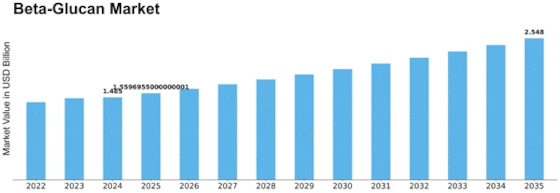


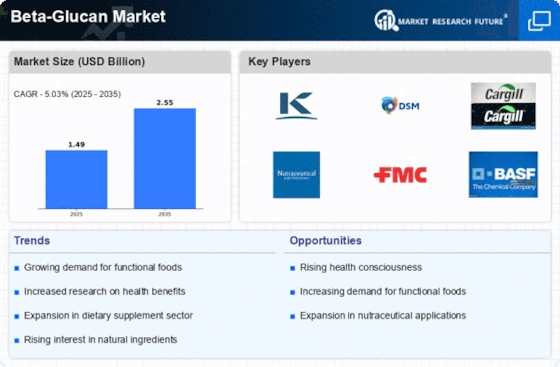

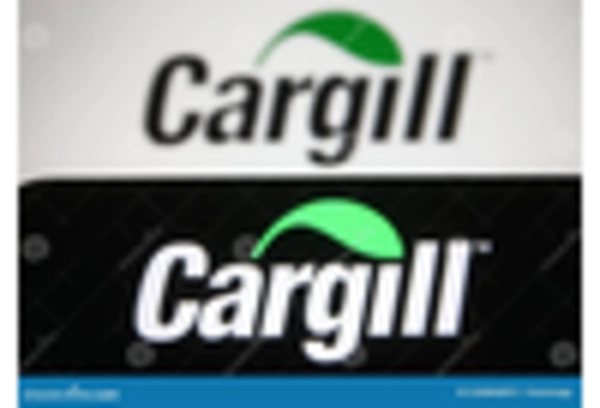
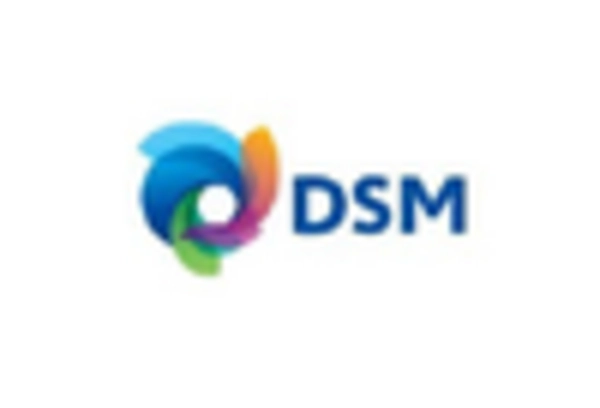

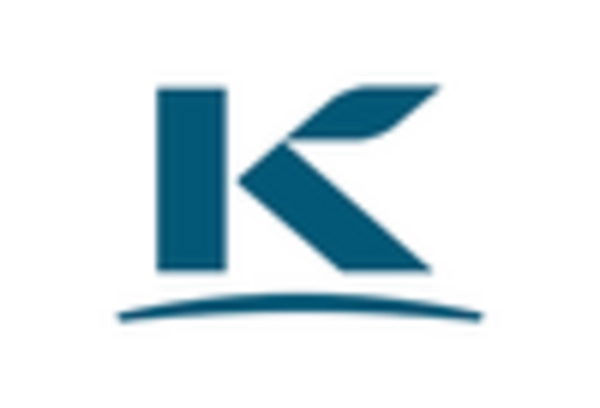
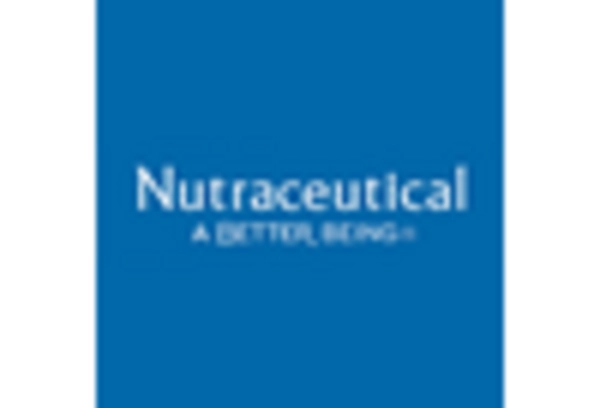









Leave a Comment